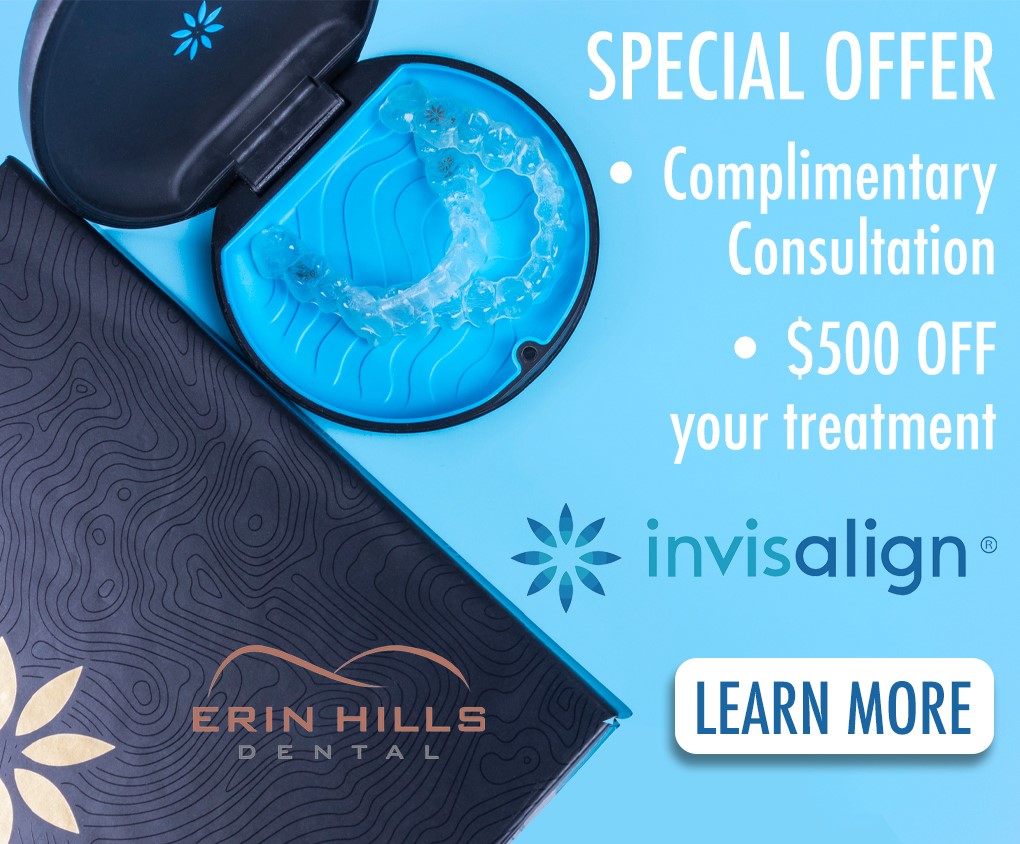Erin Hills Dental
Blog & Articles
Teeth Whitening
November 4, 2015 / DENTISTRY
The holidays are coming and you want your smile to be the whitest and brightest, right? While brushing and flossing are great ways to keep your teeth healthy and white, chances are you feel like you could be doing more. The good news is: you’re not alone. The American Academy of Cosmetic Dentistry polled a select group of people, and the most common response to the question: “What would you like to improve about your smile?” was this: “I’d like to have whiter teeth.”
If you’re considering teeth whitening options, you need to know a few things. Following are the most common questions often asked about this procedure.
Why are my teeth discolored?
Over the years, your teeth become discolored for a variety of reasons, including:
- Food/drink
- Tobacco
- Age
- Trauma
- Medications
What are my options for whitening my teeth?
Of course, you should always speak with your dentist before starting the whitening process. There are three options for whitening your teeth:
- Toothpaste - these remove the stains on the surface of your teeth using mild abrasives. Make sure that you check your products for the ADA seal so that you can be sure the toothpaste you choose is safe and effective. These products will not change the color of your teeth, because they only remove the surface stains.
- In-office bleaching - this typically requires one visit to the dentist. He/she will apply a protective gel or a rubber shield to protect your gums. Then, bleach will be applied to your teeth and a special light/laser will be used to enhance the whitening.
- At-home bleaching - these usually come in the form of a gel that is put onto a tray that fits on your teeth. You can also use whitening strips that stick to your teeth. While these are effective, they are much lower in concentration than you would find in your dentist’s office.
What are the side effects to teeth whitening?
In some cases, those that use teeth whiteners may have some sensitivity. This occurs when the peroxide gets through your enamel into the soft layer of dentin and causes the nerve to become irritated. Most of the time, the sensitivity will be temporary. You can always delay the process and try again later.
If you use these products too often, you could damage your gums or tooth enamel, so make sure that you follow the directions and always speak with your dentist before doing anything.
Holiday parties are coming up fast- you want sparkling smile.
Archive
- Say Goodbye to Tooth Troubles: Your Guide to Tooth Extractions
- Say Goodbye to Tooth Sensitivity: Causes, Symptoms, and Solutions
- Transforming Dental Treatments with iTero Digital Scanners
- Unraveling the Mystery of Gum Disease: Prevention and Care
- The Remarkable Benefits of Dental Implants
- The Benefits of Regular Dental Cleanings and Scaling
- The Remarkable Benefits of Dental Implants
- Fighting Off Fall Allergies for Oral Health
- Sedation Dentistry Unveiled: The Magic of Nitrous Oxide
- Unlocking the Magic of Teeth Whitening: Your Path to a Dazzling Smile
- How to Choose the Right Toothpaste: Ingredients, Benefits, and Recommendations
- The Dangers of Untreated Gum Disease
- Things You Should Know About Invisalign
- Foods That Brighten Teeth Enamel
- Four Tips to Help You Maintain Good Oral Health for a Lifetime
- Digital Dental Impressions: Everything You Need to Know
- Improve the Look of Your Smile with Invisalign
- Don't Let the Pandemic Keep You Away From the Dentist
- What are my cosmetic dentistry treatment options?
- Sedation Dentistry: Can You Really Relax in the Dentist’s Chair?
- Teeth Whitening








